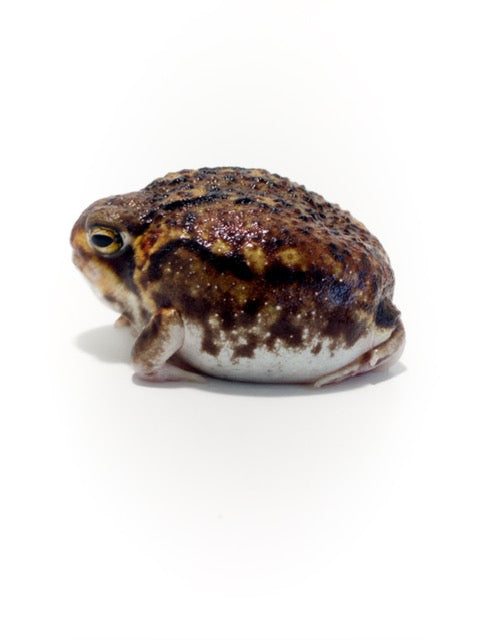Discover Your Perfect Rain Frog for Sale: Dive into the World of Unique Amphibians!
Discover Your Perfect Rain Frog for Sale: Dive into the World of Unique Amphibians!
Blog Article
Common Health And Wellness Issues in Reptiles: Signs and Solutions
In the detailed globe of reptile treatment, recognizing the common health issues that may influence these unique creatures is critical in ensuring their health. Whether it's grappling with parasitical problems, browsing dehydration worries, or addressing skin disorders that manifest in refined ways, being attuned to the signs and symptoms and geared up with the understanding of reliable options is important for any reptile proprietor.
Breathing Infections
Respiratory system infections in reptiles can significantly affect their overall health and call for punctual attention from skilled veterinarians. In reptiles, respiratory system infections can be especially testing to identify and deal with due to their special composition and physiology.
Therapy for respiratory system infections in reptiles generally includes a mix of supportive care, such as keeping appropriate humidity degrees and temperature slopes in the enclosure, in addition to targeted medicine to resolve the details microorganism in charge of the infection. It is crucial for reptile owners to monitor their animals closely for any signs of respiratory system distress and seek vet treatment at the earliest sign of a concern. With timely intervention and proper therapy, several reptiles can recover totally from respiratory system infections and return to normal activities.

Metabolic Bone Illness
What elements add to the development of Metabolic Bone Disease in reptiles?
Metabolic Bone Disease (MBD) in reptiles is primarily brought on by an absence of appropriate calcium, phosphorus, and vitamin D3 degrees in their diet regimen. When reptiles do not obtain appropriate calcium, either with their food or appropriate UVB exposure for vitamin D3 synthesis, they go to a high threat of creating MBD. Reptiles with diet plans low in calcium or unbalanced calcium to phosphorus proportions are specifically susceptible. Additionally, inadequate exposure to UVB light protects against reptiles from manufacturing vitamin D3, which is critical for calcium absorption and bone wellness.
Inadequate moisture levels can additionally affect a reptile's ability to metabolize calcium efficiently. Routine veterinary exams, correct husbandry methods, and a balanced diet plan are important to stop Metabolic Bone Condition in reptiles.
Parasitic Invasions
Parasitic problems posture a significant health and wellness risk to reptiles, influencing their general health and calling for punctual veterinary interest. Reptiles can be affected by different parasites, consisting of termites, ticks, internal worms, and protozoa. These bloodsuckers can trigger a variety of symptoms, such as weight reduction, sleepiness, skin inflammation, diarrhea, and even death if left untreated.
One common parasite found in reptiles is the mite, which can trigger skin stress, anemia, and irritation. Ticks are an additional external bloodsucker that can create and transfer diseases discomfort to the reptile. Internal bloodsuckers like worms and protozoa can bring about digestive concerns, lack of nutrition, and damage the reptile's immune system.
To detect a parasitical invasion, a veterinarian may perform fecal tests, skin scrapings, or blood examinations. Therapy commonly involves deworming drugs, antiparasitic bathrooms, or visit this web-site in severe cases, a hospital stay. Preventative steps such as regular veterinary check-ups, appropriate health, and quarantine procedures for new reptiles can assist lessen the threat of parasitical invasions and ensure the health of reptile pets.
Dehydration and Hydration Issues
Dehydration in reptiles can significantly impact their health and wellness and wellness, requiring prompt intervention and appropriate hydration administration. Reptiles are prone to dehydration due to numerous factors such as poor water consumption, high environmental temperatures, and specific wellness conditions. Signs of dehydration in reptiles include sunken eyes, sleepiness, loss of skin elasticity, and decreased urination. Dehydration can lead to serious health issues and even be deadly to the reptile - rain frog for sale. if left without treatment.
To stop dehydration, reptile owners should ensure that their animals have accessibility to tidy water in all times. The water meal should be big enough for the reptile to take in if required, particularly for types that soak up water via their skin. Additionally, keeping proper moisture levels in the reptile's room and supplying normal bathrooms can assist prevent dehydration.
In instances of dehydration, it is important to look for vet care quickly. A vet may carry out fluids either by mouth or with injections to rehydrate the reptile. It is vital to resolve the underlying root cause of dehydration to avoid recurrence and ensure the reptile's general well-being.
Skin Disorders

Conclusion

Respiratory infections in reptiles can dramatically influence their total health and call for timely attention from skilled vets (rain frog for sale). Preventative procedures such as regular veterinary examinations, appropriate health, and quarantine treatments for new reptiles can aid decrease the danger of parasitical invasions and make sure the health of reptile family pets
If left without treatment, dehydration can lead to severe health problems and also be deadly to the reptile.
Frequently examining your reptile for any adjustments in skin appearance, look, or shade can help in very early detection and treatment of skin ailments, promoting the overall health and wellness and health of your scaly buddy. - rain frog for sale
In verdict, reptiles are susceptible to different health and wellness concerns such as respiratory system infections, metabolic bone illness, parasitic invasions, dehydration, and skin ailments.
Report this page